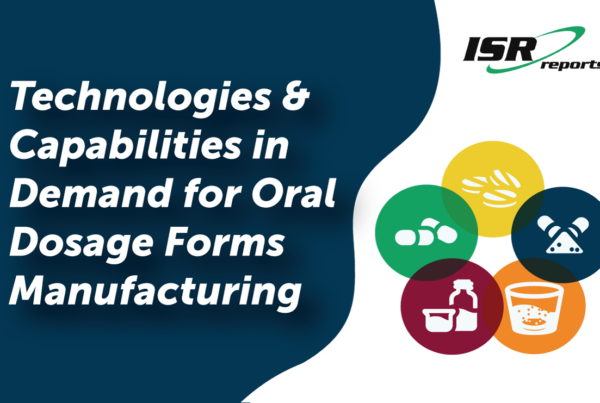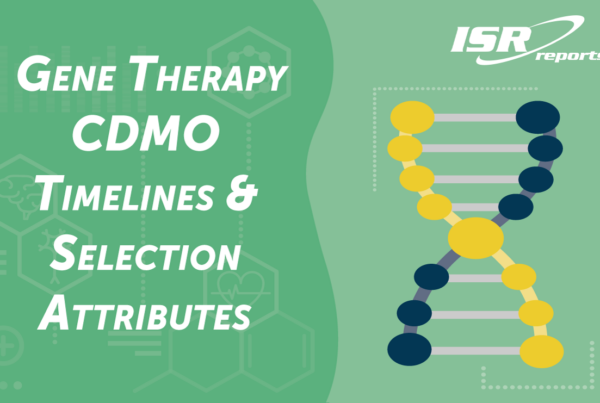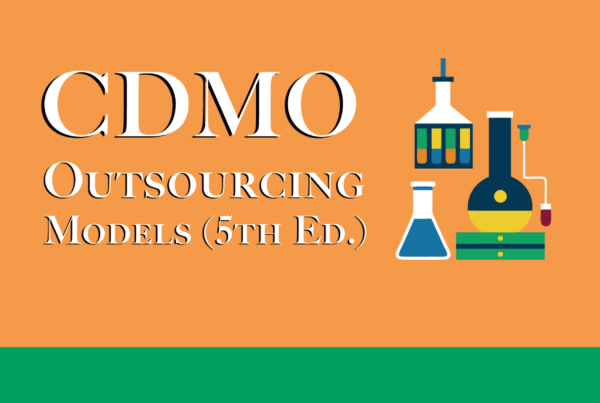Each of the past three years, Industry Standard Research has included questions in its annual CDMO benchmarking research to better understand whether the pandemic has affected drug innovators’ outsourced manufacturing for small molecule drug substance, small molecule drug product, biologic drug substance, or biologic drug product. Among those who have been affected, we asked how their organization will mitigate the impact in the coming months and years. The data show that roughly half of respondents (53%) to the 2023 surveys confirmed the effects of the pandemic are still shaping their relationships and influencing their work with CDMOs. That’s a 3% reduction from the survey responses in 2022.
This year’s benchmarking data reveal that outsourcers of small molecule drug product were least likely to report pandemic-related complications (49%) in the past year compared to small molecule drug substance (53%), biologic drug substance (53%), and biologic drug product (58%). The proportion of small molecule API outsourcers experiencing pandemic complications is nearly even with last year (53% vs. 52%). However, among the small molecule drug product outsourcers, there was a 17-percentage- point spike in the data a year ago, where 57% of respondents reported complications, which has now dropped eight percentage points in the 2023 results. This means even oral dose (among other types of small molecule drug products) outsourcers have experienced a bit of a wild ride when working with CDMOs during the pandemic.
Sponsors Experiencing A Wild Ride
On the biologic side, where there is a greater likelihood of increased demand on available CDMO capacity for both drug substance and drug product manufacturing related to the COVID-19 vaccine, the “recovery” from pandemic complications is yet to be seen. Three years ago, 44% of biologic drug substance outsourcers confirmed pandemic- related complications, which increased by 12 percentage points in 2022 (56%) and dropped by three percentage points in the 2023 results (53%). The good news is that the proportion of biologic drug substance outsourcers experiencing pandemic-related problems is not continuing to increase; however, it has not yet dropped to year-one levels. When it comes to biologic drug product, pandemic-related complications appear to persist. This is likely related to the increased demand and the timeline required to bring more sterile injectable capacity online. Roughly half of biologic drug product outsourcers (51%) reported pandemic-related complications in the prior year in our 2021 benchmarking survey. This figure increased to 59% in the 2022 research and remained steady at 58% in the 2023 results.
Regardless of the outsourced manufacturing activity, the same three risk mitigation strategies rose to the top at respondents’ companies: Plan to increase contingency planning, plan to increase inventory/supply stock, and plan to increase supply chain oversight. Overall, the pandemic has highlighted the importance of building resilience into the supply chain, including the need to identify secondary suppliers for manufacturing services as well as manufacturing supplies. Investing in digital technologies to support virtual site visits and to keep track of inventory can also help mitigate complications.
Visit our market research portal to learn more about our drug manufacturing focused industry data.




